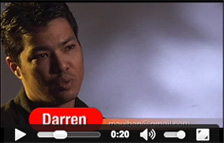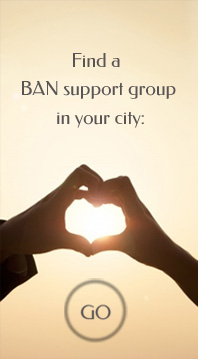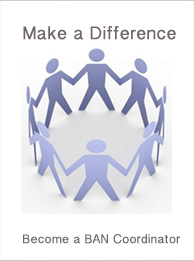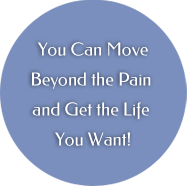If there is no BAN (Beyond Affairs Network) Support Group in your city …
Please do not e-mail a Coordinator in a city that is not where you live
since they are ONLY responsible for their own local community.
(BAN is NOT for email-only contact. It’s for attending meetings.)
(BAN only exists in areas where someone has volunteered to be the local Coordinator.)
*If there is no Coordinator listed for your area, you can volunteer to start a local group.*
To become a BAN Coordinator may not be as hard as you think. All BAN Coordinators are betrayed spouses on their own journey’s to healing from their spouses betrayal. You do not need to be healed to be a coordinator, because all the information is laid out for you and BAN coordinators receive support from the Beyond Affairs Network head office and from Passionate Life Seminars, and Affair Recovery Specialists Brian and Anne Bercht, and BAN’s Assistant Director Tammie Waitley.
How to become a BAN Coordinator:
Step 1 – Read all the information about BAN located on this website: History of BAN, The Need for BAN, BAN Guidelines.
Step 2 – Set up a neutral email such as “yourcityintheUK-BAN@yahoo.com” . This way your own identity can remain confidential. BAN coordinators are responsible to respond to initial inquiries about BAN in your area that will come in because your BAN email is listed on this website. When you sign up we provide the information on how to answer these inquiries. (You do not engage in ongoing correspondence with them, unless you both just want to.)
Step 3 – Fill in the BAN Coordinator Application Form on this website and submit.
Step 4 – We will send you access to the resource page for BAN Coordinators. There you’ll be able to read about how to respond to inquiries, how to facilitate a BAN meeting, how to find a meeting space, and how to get the word out in your local area.
Step 5 – After you’ve reviewed the basics, we will set up an interview/orientation with you by phone to answer your questions and make sure leading a BAN group at this time is right for you. As a BAN Coordinator, you and your healing are important to us. We are here to help and support you on your way. Special training for BAN coordinators is also available.
Step 6 – When you have yourself and at least 2 other people committed to attend a meeting, you find a meeting location and choose the date time, and let the others know.
It’s that easy!
We have suggested meeting outlines for you, and a set of guidelines. No one is the leader. No one tells anyone what to do. Being a BAN Coordinator does not mean you’re supposed to be healed yourself, or have all the answers. No one plays counselor or therapist.
Together you share what has been helpful to you so far, and offer encouragement, understanding and support. The coordinator has access to a private online discussion forum for all the BAN coordinators worldwide where you can ask questions and get advice about how to run your meetings. At best you facilitate. Most BAN meetings are held once a month and last around two hours.
When you become a BAN coordinator, you gain access to a BAN Coordinators Private Page on the website – that is accessible ONLY to BAN Coordinators. The page provides links to a lot of information to help you in your role as a Coordinator.
The material available through the BAN Coordinators Private Page includes:
Overview of Role of Coordinator
Coordinators Handbook
Basic guide and support for your local effort
eGroup Guidelines
An eGroup mail-list for all Coordinators to share information/ideas for working with BAN
Role of Coordinator
Focuses on “preparing” to have meetings
Getting out the Word
Press Releases
Tips for using press releases and other ideas
for getting out the word
Sample Brochure
A brief overview of BAN information to distribute to anyone in your community (civic organizations, churches, etc.) in an effort to reach people other than through your Coordinators e-mail address posted on the Website on the “List of Cities”
The BAN Book
This is an overview of the basic information about BAN,
mostly taken from the material posted on the website;
excellent resource to be given or sent out to counselors,
religious or civic organizations, etc. in your community
to inform them about BAN
Sample Cover Letter
This is a sample letter that can serve as a cover letter for giving out the “BAN Book” if you want to provide it to any counselors/therapists in your area
Setting up and Facilitating BAN Meetings
Setting up Meetings
Focuses on the role of the coordinator in “preparing” to have meetings, including:
Facilitating Meetings
Some tips for facilitating meetings,
both the First meeting and later meetings
Purpose and Guidelines(Handout)
To distribute to those attending the first meeting
and to each new member who joins later…
so everyone will understand the overall goals of BAN
Topics to Discuss at Meetings
This is a group of 18 previous Questions of the Week
(and my Responses) that can serve as possible topics for discussion at meetings.
Meeting Discussion Guides
This is a group of 7 discussion guides contributed by one of our Coordinators, that provide specific guidance in discussing some key topics at meetings.
Articles about Affairs (posted on the www.beyondaffairs.com Website)Recovery Graph
This provides good perspective as you work with others in going through the slow, jerky road to recovery.
So if you are interested in volunteering to Become a BAN Coordinator,
please fill in the BAN Coordinator Application Form. We’ll be in touch with you shortly to guide you in a very personal way!
Finally, if there is no city in your area (and you are not interested in volunteering),
you can periodically check the List of Cities to see if someone else has volunteered.
In the meantime, if you are struggling alone…
I encourage you to read EVERYTHING on BAN’s sister website www.beyondaffairs.com and listen to some of the many free audio seminars on all aspects of affair recovery – so that at least you can recognize that you are not alone – that many others have been and are going through this experience.
(The more you learn/understand, the better you’ll be able to recover.)
I also encourage you to reach out to find SOMEONE you can confide in and talk to – even if it’s not in a support group. The isolation is one of the most difficult factors that makes recovery more difficult.
With a heart to help,
Your friend in Affair Recovery, Anne Bercht







